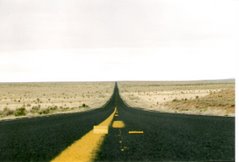
Jonah Goldberg's booke Liberal Fascism: The Secret History of the American Left, From Mussolini to the Politics of Meaning
Many on the left don't even know what the word "fascist" means, yet they will hurl the label at anyone with different political opinions (see Stuff White People Like: Comparing People to Hitler). Goldberg argues that American conservatism is incorrectly viewed by the left as somehow related or growing out of fascism. Instead, liberalism comes directly from an intellectual tradition that has much in common with fascism. He does not argue that liberals are Nazis or anything of the sort. Fascism is expressed differently in different cultures, Nazism was one expression, progressivism is another. Racism and violence are not essential components of fascism. Here is the author's definition of fascism:
Fascism is a religion of the state. It assumes the organic unity of the body politic and longs for a national leader attuned to the will of the people. It is totalitarian in that it views everything as political and holds that any action by the state is justified to achieve the common good. It takes responsibility for all aspects of life, including our health and well-being, and seeks to impose uniformity of thought and action, whether by force or through regulation and social pressure. Everything, including the economy and religion, must be aligned with its objectives. Any rival identity is part of the “problem” and therefore is defined as the enemy.
I always wondered why history books described Nazi Germany and Fascist Italy as "right-wing". The truth is that fascism is right-wing leftism. It was the international socialist movement that labeled fascism as right-wing, as national socialism was heresy to the internationalists (nationalism vs. class struggle). The internationalists saw fascism as the last gasp of capitalism - fascists would not completely take over the means of production but would instead regulate industry to the point where industry's goals were perfectly in line with "the People's" goals.
Conservatism as an intellectual tradition has nothing in common with fascism. It opposes all forms of political religion and instead views the state as a necessary evil intended to protect our God-given rights. Goldberg writes that "a conservative is one who protects and defends... private property, free markets, individual liberty, freedom of conscience, and the rights of communities to determine for themselves how they will live within these guidelines." However, conservatives are not immune from the temptation to engage in totalitarianism. They are sometimes tempted to fight fire with fire: e.g. opposing a multi-cultural/post-modern society by trying to impose a Christian/traditional values society instead of promoting a free, open society that allows the best ideas to win.
Liberalism, on the other hand, traces its roots to progressivism. Progressive views of the role of government are much closer to the fascists. They tend to believe that the government should do about anything, as long as it is "good" for people. It can't be tyranny, they are doing nice things for people. Goldberg documents how many American progressives openly admired Hitler and Mussolini and were in fact jealous of what they were accomplishing, until their militarism overshadowed their domestic agenda (which was not much different from what you hear from the left today). Goldberg argues that American liberalism "is a totalitarian political religion, but not necessarily an Orwellian one. It is nice, not brutal. Nannying, not bullying."
I'll close with a quote from Richard Weaver that Goldberg uses in the book to summarize why this subject is important.
The past shows unvaryingly that when a people’s freedom disappears, it goes not with a bang, but in silence amid the comfort of being cared for. That is the dire peril in the present trend toward statism. If freedom is not found accompanied by a willingness to resist, and to reject favors, rather than to give up what is intangible but precarious, it will not long be found at all.

5 comments:
Not gonna take the bait. Hope about we post on books that are actually worth reading?
Boo! But we were having so much fun on the last one.
Tyranny is still tyranny, despite the good intentions of the tyrants. The subject reminds me of a somewhat recent Simpsons episode where Lisa and a new friend create an imaginary world called Equalia -"where everyone is equal, but we're in charge."
I welcome any discussion on books you feel are worth reading - Das Kapital, perhaps? The Little Red Book? (=
now I understand why my dad called me a fascist this fall.
Boo to you! Unfortunately I don't have time to read right now. But if I did, I would read something like "Cities and Natural Process" by ecologist Hough. I like to temper my political readings with ones that relate more to my profession. That being said, "Team of Rivals" about Lincoln's presidency is on my list. See how I get points for that because it's not strictly partisan?
Adrienne - Major points indeed. I've been meaning to read that as well.
Suz- eek.
I'm not trying to say that liberals are fascists, but if you go by Goldberg's definition, it's hard to argue that there's not some similarity. Keep in mind that fascism has little to do with militarism, but more to do with totalitarianism.
I will argue for freedom, liberals will argue against freedom in favor of equality. Freedom leads to prosperity, totalitarianism to poverty and I'm sad to say freedom is losing big time right now.
Post a Comment